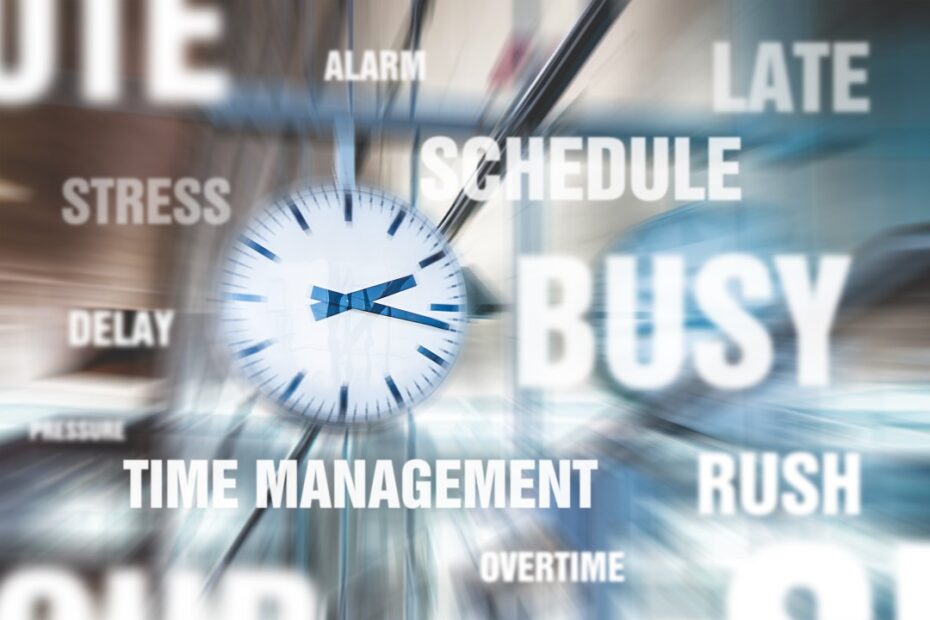If you want something done, give it to a busy person.
I’ve been giving that quote a lot of thought lately. We run three businesses in our household. A few months ago, we decided to buy some land and build a new house. I’m spending huge amounts of time jumping through government hoops to secure various permits at the same time as prepping our current house for a Spring sale. Oh yeah, it’s also year end and tax season both personally and for two of our businesses.
Despite juggling an insane number of balls, I have found myself taking pains to be more organized, so I can manage my time effectively and meet all the competing deadlines. Here’s what’s surprising to me: I’m getting more done.
While waiting for a colleague to join me on a call, I thought I’d dig into this phenomena and see if there’s any truth in the idea that busy people can get more done.
Are you Busy or Productive?
It seems like everyone I talk to is scrambling around from one task to another and doesn’t have enough time in the day. I hear about bottomless to do lists and schedules that are packed to the rafters so finding time for coffee is scheduled weeks out.
Is all this frantic activity making us productive, or just busy?
I think we need to distinguish between the busy and product and for that, I want to share a quote from John Spencer:
“Being busy is about working harder while being productive is about working smarter. Being busy is frantic while being productive is focused. Being busy is fueled by perfectionism while being productive is fueled by purpose. Being busy is about being good at everything while being productive is about being great at a few important things.”
What do you think? Are you productive or just plain busy?
Prioritizing Productivity
Research like this one tests the theory that being busy increases your motivation to be as efficient as possible with the amount of time you dedicate to each project to ensure you don’t miss deadlines. It found that busier people do seem to organize their time in a way that ensures deadlines are met.
I remember taking a time management course in the late ’90s that had us categorize all activities based on whether they would help you achieve the primary goals you set. While I don’t use the system today, some of the lessons have stuck. I am ruthless about adding “tasks” to my day or week that aren’t critical to what I have prioritized. Extra tasks (that aren’t mission critical to my goal) get relegated to the end of the week and if I don’t have time, guess what, they don’t get done … but I also don’t promise anyone that I will get those tasks done because I am someone who will beat myself up if I don’t meet deadlines or deliver on what I’ve promised.
I’m extremely deadline driven. I blame my years as a reporter … after all, the paper won’t wait for you to finish a story. I set deadlines for everything (whether I’ve been given a timeline or not). This is my way of ensuring I don’t fall into the trap of productive procrastination – which essentially means keeping busy doing things that aren’t critical (and I am a master at the art of productive procrastination).
Be Realistic
An important caveat to all these discussions about being productive and meeting deadlines come down to a few cardinal rules.
1. Set reasonable deadlines. We know how long it takes to complete specific tasks and there’s no point in setting yourself up for failure. If you’re getting pushed to complete a project in an unreasonable timeframe, something has to give and other priorities will need to shift accordingly.
2. Say no. There are a lot of things I don’t do, or I will hire out. For me, housecleaning is not an effective use of my time (and if I’m honest, I don’t love cleaning). If I hire someone to clean the house, that’s hours of time I can spend on other things. When it comes to entertaining, if I’ve had a busy, deadline-filled week, we’re going out to dinner or ordering in. I’ve no driving desire to be seen as Superwoman Martha Stewart, and I think trying to balance work, home and unrealistic standards is detrimental to our well being!
3. Control your destiny. I know, this sounds lofty but we have to be able to take control of our time and the demands being made on that time (from work colleagues, family and, in my case, clients). Too often days spiral out of control because of outside forces. How you handle those demands could make a big difference in how you manage and control your time.
4. Examine what’s keeping you busy. How many things on your packed schedule do you really need to do? If you enjoy it … keep it up. But, if they are just activities that are keeping you running around and not letting you focus on what’s really important, say no and find a way to stop doing it. Saying no isn’t easy but it is a skill we all should master.
I remember reading how top entrepreneurs and business owners leave large blocks of time open in their calendar to think and plan. I think it’s a smart idea. Overscheduling your day doesn’t give anyone your best.
Now, before I get back to my assignments for the day, here’s a piece of advice (and a short assignment): Take a good hard look at your to do list. How much of it is essential or helps you reach a specific goal? Next, look at your calendar. Is it packed to the rafters? It might be time to re-evaluate how you’re spending time and see if you can move the marker from busy to productive and get some of your life back!
